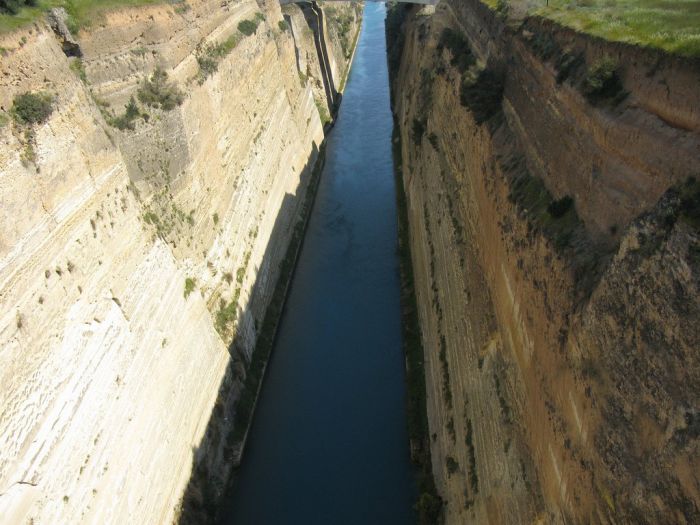|
|
The Corinth Canal, Aegean Sea, Greece
|
The philosopher and Roman senator Herodes Atticus is also known to have considered digging a canal in the 2nd century AD, but did not manage to get a project underway. The Venetians also considered it in 1687 but likewise did not initiate a project.
• Construction of the modern canal
The idea of a Corinth Canal was revived after Greece gained formal independence from the Ottoman Empire in 1830. The Greek statesman Ioannis Kapodistrias asked a French engineer to assess the feasibility of the project but had to abandon it when it was costed at some 40 million gold francs – far too expensive for the newly independent country. Fresh impetus was given by opening of the Suez Canal in 1869 and the following year, the government of Prime Minister Thrasyvoulos Zaimis passed a law authorising the construction of a Corinth Canal. French entrepreneurs were put in charge but failed to carry out the project. A fresh concession was granted to the Société Internationale du Canal Maritime de Corinthe in 1881, which was commissioned to construct the canal and operate it for the next 99 years. Construction was formally inaugurated on 23 April 1882 in the presence of King George I of Greece.
The company's initial capital was some 30,000,000 francs, but after eight years of work it ran out of money and a bid to issue 60,000 bonds of 500 francs each flopped when less than half of the bonds were sold. The company's head, the Hungarian István Türr, went bankrupt, as did the company itself and a bank that had agreed to raise additional funds for the project. Construction resumed in 1890 when the project was transferred to a Greek company, and was finally completed on 25 July 1893 after eleven years' work.
|
|









